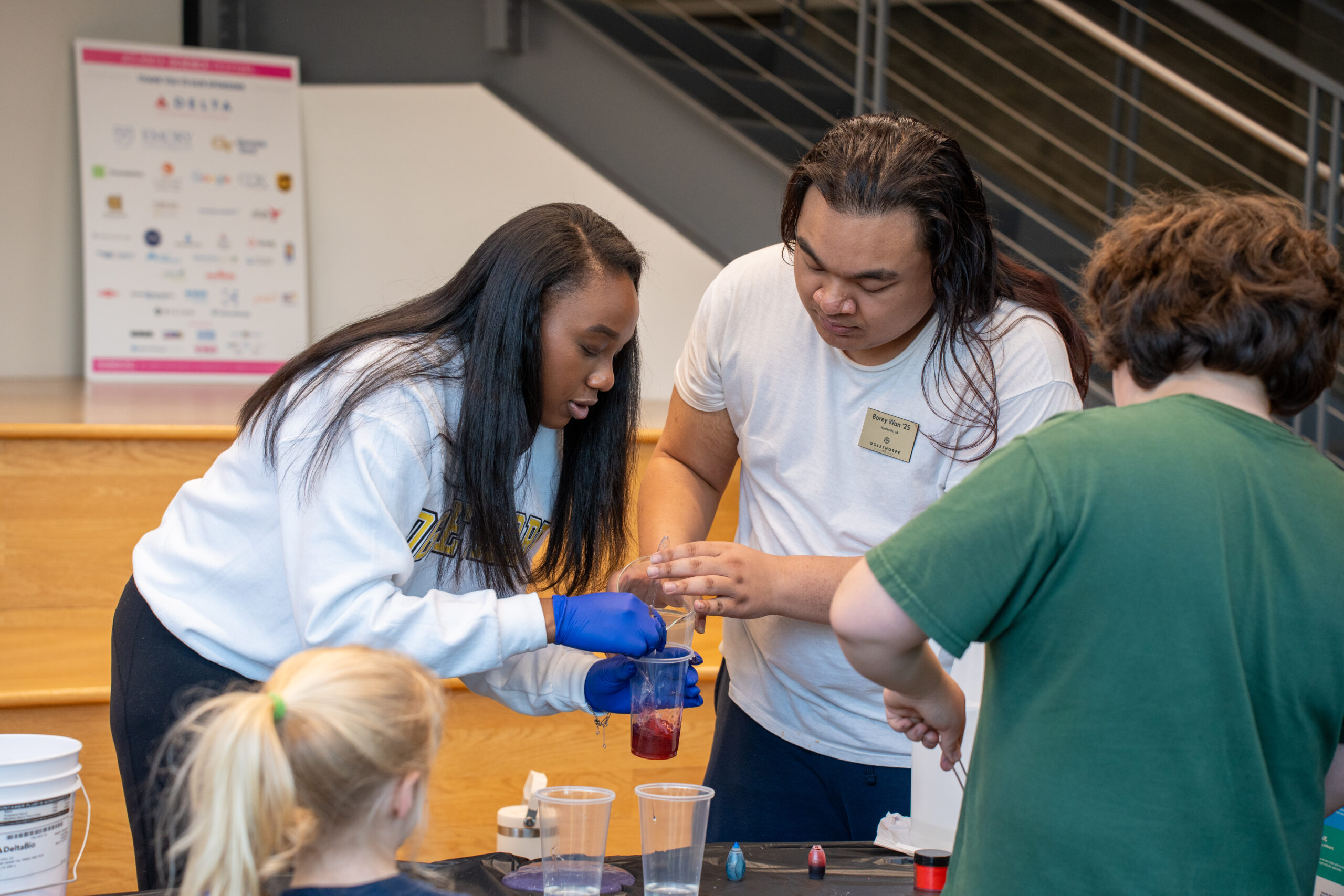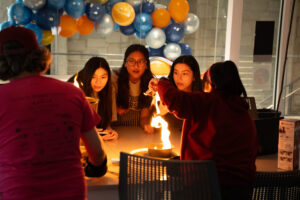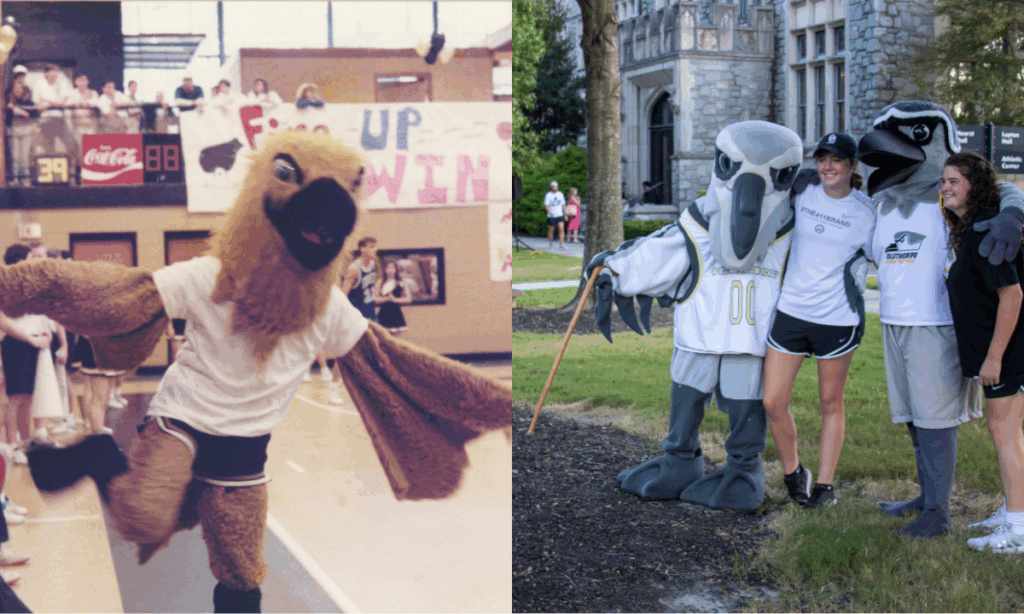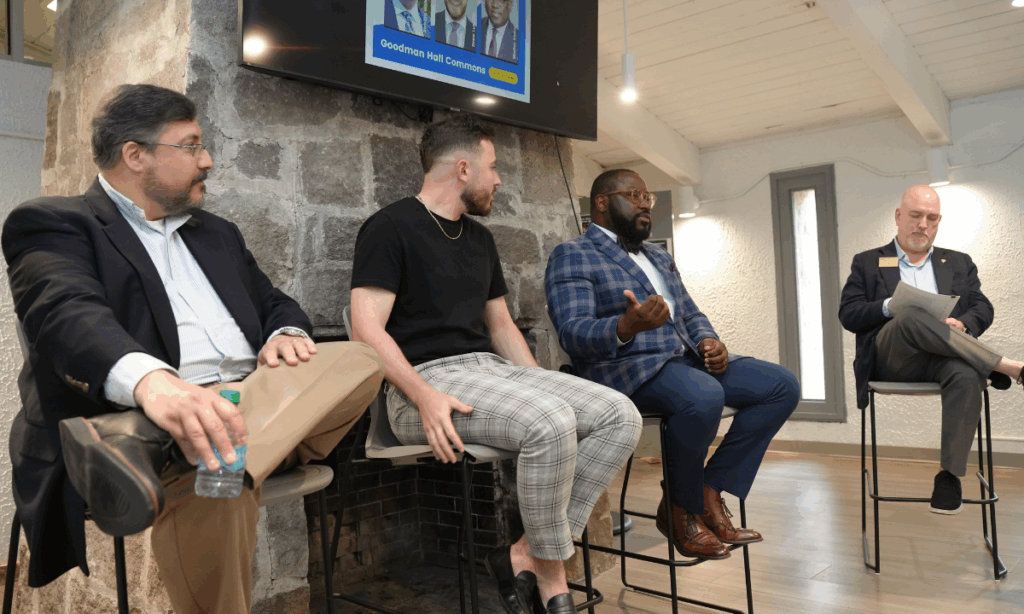For the third consecutive year, Oglethorpe University participated in the Atlanta Science Festival, hosting a sold-out, hands-on STEMFest event for families at the Cousins Center for Science and Innovation.

A two-week annual celebration of science and technology, the Atlanta Science Festival features more than 150 interactive and educational events for curious kids and adults at venues across the region and showcases STEM career opportunities in metro Atlanta.
Oglethorpe’s participation in the festival was organized by STEM faculty: Assistant Professor of Chemistry Dr. Milana Thomas, Visiting Assistant Professor of Biology Dr. Megan Murphy, and Visiting Assistant Professor of Biology Dr. Zack Deckner.
Oglethorpe joined other Atlanta institutions like Emory University, Georgia Institute of Technology, and the Metro Atlanta Chamber of Commerce and sponsors Delta Air Lines, UPS, Google, Cox, Lockheed Martin, NCR Foundation, and others.
The theme for this year’s activities was “Space Race at Oglethorpe University.” OU faculty and approximately 80 Division III students volunteered to make the event a success. The STEM activities included Alka-Seltzer-powered “bottle rockets”, nitrogen-cooled ice cream, a dark maze that attendees navigated to reach a solar system projection, and more.
The Cousins Center For Science and Innovation was temporarily transformed to help transport attendees into outer space. Families received a “galactic passport” to visit celestial objects, including Earth and its moon, Mars, Jupiter, and Saturn.

On “Earth,” attendees learned from Dr. Maura Dudley’s Stream Team how human interaction with aquatic ecosystems can affect water quality. Mackenzie Roberson ’24, a member of Women in Science Empowerment (WISE) and the Oglethorpe Stream Team, has participated in the event for three years. This year, she showcased the intersection of art and science, using student bacterial research projects from the course BIO 202: Microbiology.
“I enjoy helping with this event for many reasons, but mainly to inspire the next generation of scientists and allow them to feel like a scientist — even if just for a few hours,” says the senior biology major.
“I love being able to see the look of wonder on children’s faces as they get to extract DNA from a strawberry, look at plant cells under a microscope, or even blood type their mom.”

A couple of planets over on “Jupiter,” families viewed demonstrations of a “fire tornado” from Dr. Mariel Meier, Dr. Dylan Collette and the Physics Club.
In addition to the Atlanta Science Festival, Oglethorpe’s STEM programs are connecting with kids in other ways, including a new physics outreach project, an initiative supported by Oglethorpe’s strategic plan. Like ASF, this physics initiative allows OU students to share their love of science with metro Atlanta children by introducing hands-on experiences.
“It is rewarding to be able to provide opportunities to students interested in STEM that I was not able to have growing up,” says Roberson.
“I encourage STEM students to participate in [ASF] because it reminds us that the things that we have become habituated to — for example, simply the infrastructure of Cousins — are wonderous to children.”
The Atlanta Science Festival continues through March 24.








